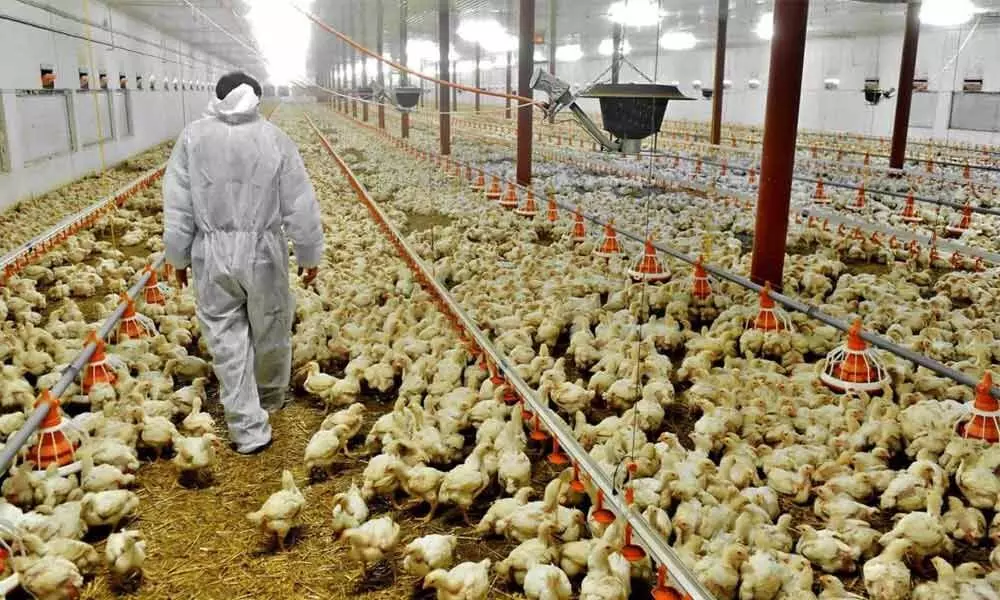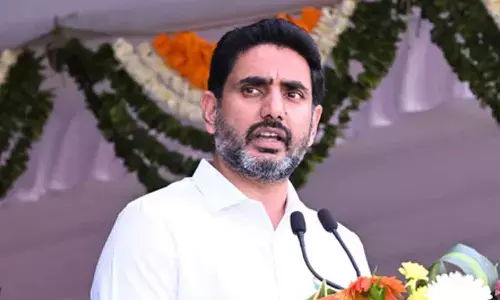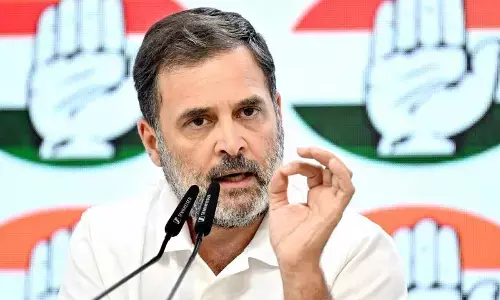Poultry farmers at greater risk of getting avian flu: Doctors

Poultry farmers at greater risk of getting avian flu: Doctors
While India is still trying to step up precautionary measures against the mutated strain, avian flu has emerged as another challenge
Bengaluru: While India is still trying to step up precautionary measures against the mutated strain, avian flu has emerged as another challenge. While Karnataka has not reported a single case, the State government has ordered all districts including Mysuru, Dakshin Kannada and Chamrajnagar to be on high alert.
Explaining about the flu, Dr S.N Aravinda, Consultant, Internal Medicine, Aster RV Hospital, said that avian influenza is a viral infection which occurs more commonly in birds.
"It is usually very rare for this to transmit to humans unless there is a mutation in the virus, and there have been no such cases in India yet. This kind of influenza virus transmits through the infected bird's saliva or other secretions such as mucus or faeces. People who work in direct contact with birds, poultry farmers etc would be at a risk, hence maintaining hygiene, proper disinfection of the area, identifying diseased birds and proper handling of dead birds are good practices," he said.
However, the spread of avian flu can be furious.
Dr. Aravinda G M, Consultant Physician – Internal Medicine, Manipal Hospitals, Jayanagar, pointed out that no cases of human infection in Karnataka have been reported yet.
"Government has already declared an alert and all infected poultries are being sealed with proper sanitisation protocols. In light of the appropriate measures taken, we can say that avian flu will soon be under control. Cause of recurrence every year should be identified and only then can this infection be prevented and abolished from its roots," he said.
Elaborating on the preventive measures Dr Irfan K J, Consultant, Internal Medicine, Columbia Asia Hospital Hebbal, suggested avoidin exposure to the sources of the virus. "Infected birds shed avian influenza virus through their saliva, mucus and faeces. Humans can get infected with bird flu virus, when enough virus gets into a person's eyes, nose or mouth or if it is inhaled. This can happen when the virus is in the air, in droplets or possibly in dust particles. When a person inhales directly or when a person touches a surface which has virus residue on it and then touches his mouth, eyes, or nose it can spread."
"Suppose if a person has a direct contact with the infected bird, they will be given antiviral drugs to prevent illness. While antiviral drugs are given to prevent flu, it can be used to prevent infection in someone who has been exposed to influenza virus. Close contact, for example family members of infected people, are being asked to monitor their health and report any flu-like symptoms." he stated.
"Avian influenza is a potential and unpredictable threat to humans because of the segmented nature of the genome. There have been outbreaks in the past among humans like H5N1 outbreak of Hong Kong 1997. However this is rare. Mass culling of the infected birds is one of the strategies adopted to prevent the spread. Travelers who plan to travel to areas of the world affected by avian influenza outbreaks in birds and/or humans are advised to avoid close contact with poultry, especially diseased or dead birds, and to consume only adequately cooked meat. If contact with birds in enclosed spaces is unavoidable, an N-95 respirator mask (or equivalent), gloves, and goggles should be used to minimize contact with droplets or particulates," said Dr. Vasunethra Kasaragod, Consultant Chest Physician, Vikram Hospital, Bengaluru














